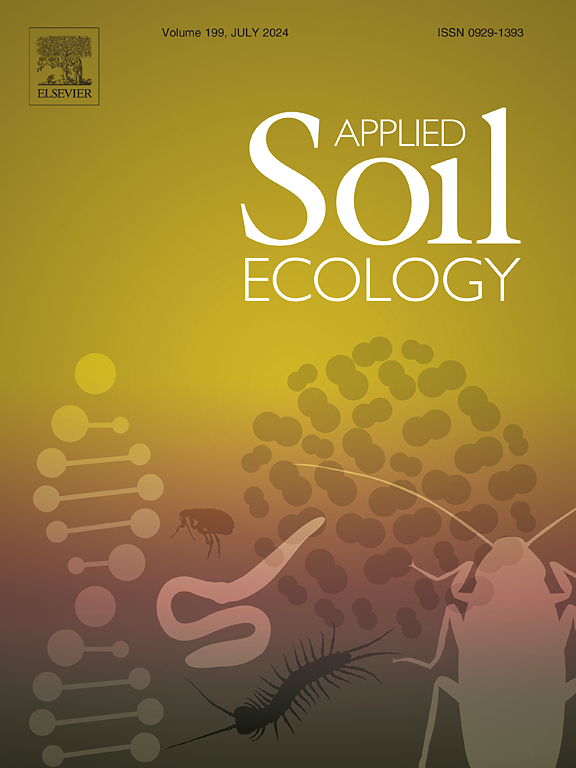弹性先驱:蓝藻在沙漠生态系统中的生态作用
IF 4.8
2区 农林科学
Q1 SOIL SCIENCE
引用次数: 0
摘要
蓝藻是沙漠生态系统中至关重要的微生物,但它们的作用和适应策略仍未得到充分探讨。问题在于气候变化和人类活动导致干旱环境的健康状况下降,威胁到这些重要生物的复原力。本文综述了蓝藻在荒漠生态系统中的生态意义,重点介绍了它们对土壤健康、养分循环和生物多样性的贡献。我们探索了各种方法,包括全面的文献综述和案例研究,强调蓝藻的适应机制,如固氮和保湿,使他们能够在极端条件下生存。此外,我们还评估了它们在形成生物土壤结皮中的作用,生物土壤结皮可以增强土壤结构和肥力,从而支持植物生长和生态系统稳定。我们的研究结果表明,蓝藻对干旱地区的初级生产有重要贡献,它们是稳定土壤和提高养分有效性的生态系统工程师。我们得出结论,了解蓝藻的适应策略对于在沙漠环境中制定有效的保护和管理措施至关重要。本文强调了跨学科研究的迫切需要,以利用蓝藻的生态潜力进行可持续的沙漠管理,并强调了它们在持续环境变化中维持干旱生态系统健康和恢复力的重要性。本文章由计算机程序翻译,如有差异,请以英文原文为准。
Resilient pioneers: The ecological role of cyanobacteria in desert ecosystems
Cyanobacteria are crucial microorganisms in desert ecosystems, yet their roles and adaptive strategies remain underexplored. The problem lies in the declining health of arid environments due to climate change and human activities, which threaten the resilience of these vital organisms. This review examines the ecological significance of cyanobacteria in desert ecosystems, focusing on their contributions to soil health, nutrient cycling, and biodiversity. We explore various approaches, including a comprehensive literature review and case studies that highlight the adaptive mechanisms of cyanobacteria, such as nitrogen fixation and moisture retention, which enable their survival in extreme conditions. Additionally, we assess their role in forming biological soil crusts, which enhance soil structure and fertility, thereby supporting plant growth and ecosystem stability. Our findings reveal that cyanobacteria contribute significantly to primary production in arid regions, acting as ecosystem engineers that stabilize soils and improve nutrient availability. We conclude that understanding the adaptive strategies of cyanobacteria is essential for developing effective conservation and management practices in desert environments. This review emphasizes the urgent need for interdisciplinary research to harness the ecological potential of cyanobacteria for sustainable desert management and highlights their importance in maintaining the health and resilience of arid ecosystems amid ongoing environmental changes.
求助全文
通过发布文献求助,成功后即可免费获取论文全文。
去求助
来源期刊

Applied Soil Ecology
农林科学-土壤科学
CiteScore
9.70
自引率
4.20%
发文量
363
审稿时长
5.3 months
期刊介绍:
Applied Soil Ecology addresses the role of soil organisms and their interactions in relation to: sustainability and productivity, nutrient cycling and other soil processes, the maintenance of soil functions, the impact of human activities on soil ecosystems and bio(techno)logical control of soil-inhabiting pests, diseases and weeds.
 求助内容:
求助内容: 应助结果提醒方式:
应助结果提醒方式:


